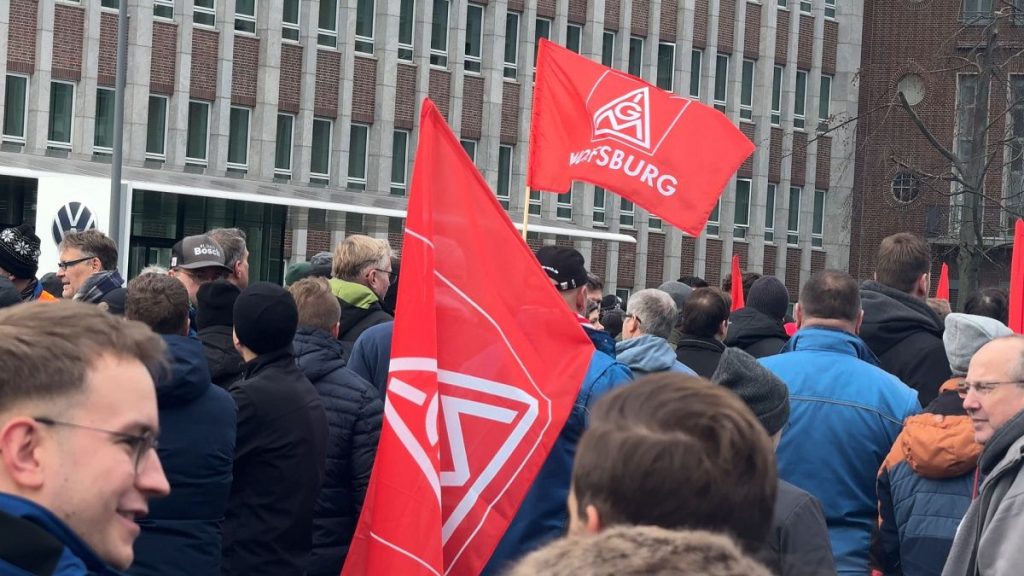On Monday, Volkswagen (VW) workers at the company’s headquarters in Wolfsburg initiated warning strikes amid a growing sense of unease surrounding job security and potential layoffs. The works council, which represents employees’ interests, publicly criticized shareholders for prioritizing substantial profits while ignoring the financial and job security concerns of their workforce. The protests, characterized by the sounds of whistles and chants, involved tens of thousands of VW employees across Germany who intermittently halted production in response to failed negotiations between VW and unions.
The motivation behind these strikes stemmed from VW’s alarming plan to close three factories, which would lead to significant job cuts and a proposed 10% wage reduction. Volkswagen cited a host of factors for these drastic measures, including declining car demand, rising labor costs, shortages of raw materials, and delays in transitioning to electric vehicles. The works council’s statements emphasized the sharp contrast between the billions gained by shareholders, particularly noted names like Porsche and Piëch, over the past decade, and the precarious position workers now find themselves in, facing the threat of mass layoffs and wage reductions.
Christian Koziol, a committed VW employee with over four decades of service, articulated the collective anxiety shared among workers regarding the future of employment for their children, highlighting a broader uncertainty. He also pointed to the implications of political policies on the automotive industry, acknowledging that there have been significant pressures due to climate protection efforts, particularly concerning emissions restrictions and their enforcement. Koziol suggested that these regulatory pressures not only shaped VW’s strategies but also placed constraints on decision-making across the automotive industry as a whole, particularly in the necessary pivot towards e-mobility to meet stringent standards.
The sentiment at VW’s headquarters reflects a broader climate of unrest. As discussions between the unions and VW are scheduled to continue the following week, the prospect of sharper strikes looms if negotiations yield no satisfactory outcomes. The overarching discontent among employees is amplified by high stakes in the upcoming snap elections in February, where the connectedness of the automotive sector to the German economy may influence public sentiment and political leadership. The implications of VW’s operational decisions extend beyond the company’s immediate workforce and could ripple through the wider economy.
Moreover, the crisis is not contained within German borders; other European countries such as Italy, France, and Belgium are experiencing significant declines in car sales, raising alarms about potential economic instability across the eurozone. The complications faced by VW and its employees mirror larger challenges for the automotive sector as it grapples with transitioning demands and economic pressures. As these warning strikes unfold, they reflect not just a singular corporate struggle but a crucial moment for labor rights and the future direction of the automotive industry within the EU.
Overall, as VW continues to navigate its challenges, workers are left advocating for a more equitable approach that balances profitability with worker welfare. The outcomes of negotiations in the upcoming weeks will be crucial not only for the employees directly impacted but also for the viability and direction of the automotive industry in Europe as it faces turbulent economic times. The question remains whether VW can find a way to appease its workforce while managing the financial pressures that have led to such drastic measures.














